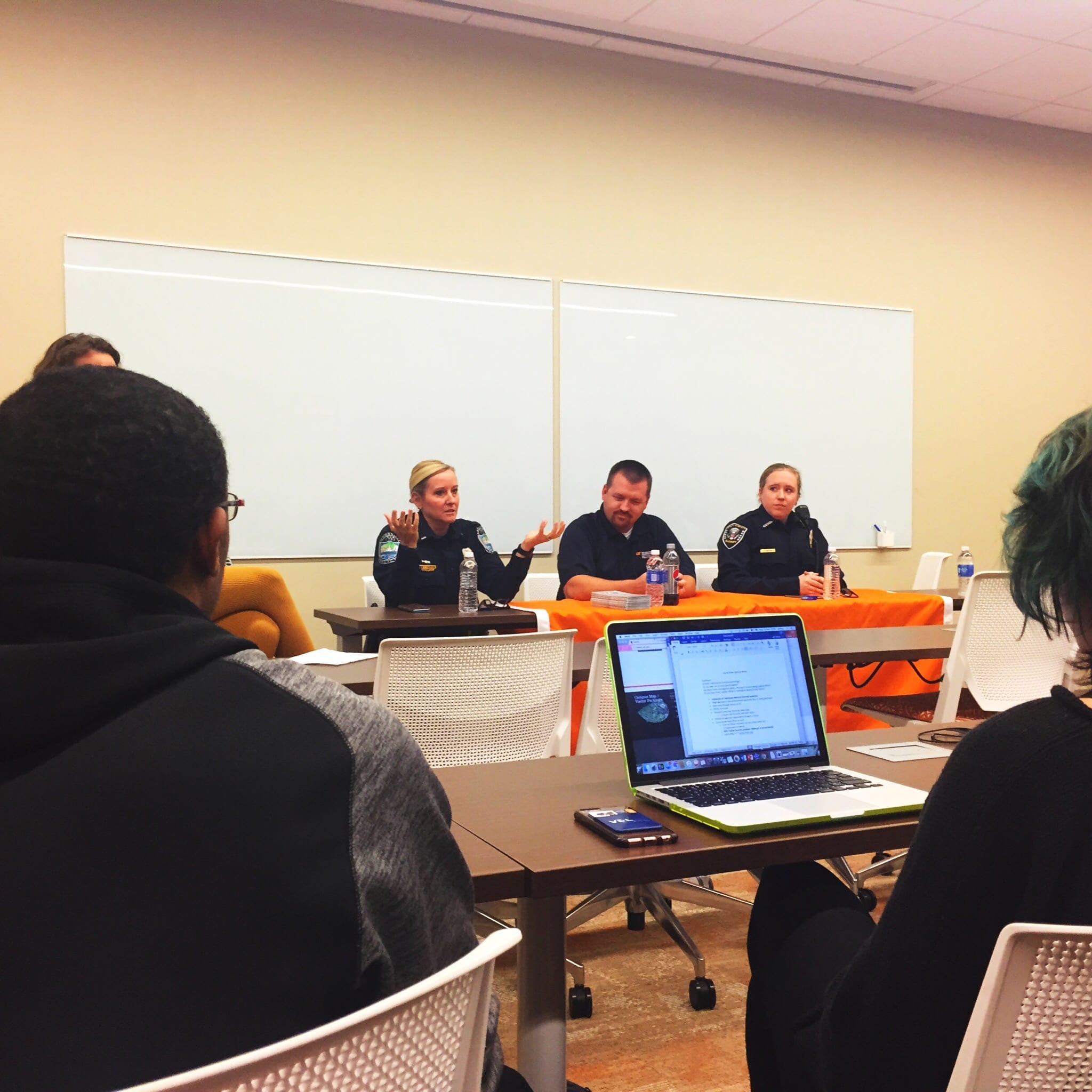Panelists Offer Insight on Careers in Law Enforcement and Forensics
The Center for Career Development hosted a panel on law enforcement and forensics as part of the Career Conversations for Arts and Sciences series.

On Wednesday, Nov. 16, Mary Beth Browder, a consultant for the Center for Career Development at the University of Tennessee, hosted a panel where students were given the opportunity to ask three expert individuals questions regarding careers in law enforcement and forensics.
All three panelists are well-versed in the field, citing years of experience, hoping to offer valuable insight to audience members.
Tammy DebBow, a lieutenant at the Knoxville Police Department and director of training at the KPD, has been a member of the law enforcement career for 17 years. During her time in law enforcement, DebBow worked nearly all positions and began with patrol, as everyone does.
“We get that question a lot,” DebBow said. “You always start at the bottom and work your way up.”
Dan Anselment, a non-native of Tennessee from Minnesota who has been a member of law enforcement for about 13 ½ years, worked patrol and the crime scene unit as a police officer and as a Medicolegal Death Investigator for the medical examiner’s office. Four years after an injury in 2010, Anselment made the decision to become a member of UTK’s Law Enforcement Innovation Center. He now oversees the university’s National Forensic Academy.
Kimberly Trotter, the third panelist, is an officer with the Knox County Sheriff’s office. She is a UT graduate and double majored in sociology and political science. Trotter has been in law enforcement for just under six years, but was fortunate enough to hire directly in to the forensics unit.
Browder lead the first half of the discussion with a series of broad questions before opening the panel for audience questions.
“When you think about kind of getting your foot in the door in law enforcement and forensics, what experiences do you feel prepares you?” Browder asked.
Drawing on his own experiences, Anselment encouraged involvement in activities such as the Explorer Post. The Explorer Post is a program designed to expose individuals between the ages of 14 and 21 to the training and work experience necessary to be a member of law enforcement.
“Your volunteer programs are really where you want to focus if your goal is law enforcement,” Anselment said. “Do something to set yourself apart from everybody else.”
He greatly encouraged investing time into agencies of interest to improve chances of being recognized by that department later on.
For positions in forensic sciences, Anselment recommended students start researching potential jobs and their requirements at www.theiai.org early to better anticipate how to get involved.
Browder soon steered the conversation into the direction of applying at agencies such as the KPD or the Knox County Sheriff’s office, inquiring as to how those processes worked.
“Once you take the written exam, there’s another series of tests you’ll have to go through,” said DebBow.
Among the tests necessary are an agility course, psychological exams, background investigations and a polygraph. However, the many tests may vary between agencies.
“It does not go quickly,” DebBow said. “If you expect to put your application in and hear something back in two weeks, you’ll be sadly disappointed.”
According to DebBow, numbers of applicants have depleted over the years, and not all those that apply are fully qualified to be accepted.
“They will check all your social media, and they’ll check your credit score,” said Trotter. “So be mindful of that.”
Browder later asked what misconceptions about the field they might want to clarify, either from situations portrayed on television shows such as Law & Order or even representations by the media.
“I’m clearly not in business casual,” said Trotter, indicating her uniform. “Nor do I drive a Hummer, nor do I make six figures.”
Trotter also emphasized that, unlike the television shows, not every crime scene was full of DNA evidence or fingerprints, and even if it is, it can take months or years for results.
“Fingerprints are squirrely,” Trotter said. “It’s not like TV at all.”
“I would say, for me, the current narrative of the media is not accurate,” Anselment said. “This profession is an incredibly rewarding profession, and there’s a lot of great individuals that work in it.”
DebBow also spoke out regarding some misconception in the media.
“I don’t put this uniform on and think ‘hey, I’m going to go out and shoot someone today’,” DebBow said. “When we put this uniform on, you’ve got to understand that our goal is to come home at the end of our shift.”
“I think I’m more so interested in doing anything in the forensic field,” Celeste Murphy, a senior at UT, said at the end of the Q&A. “This taught me the steps I need to take for once I graduate. It was definitely very helpful.”
Featured Image by Bethany Daniel
Edited by Kaitlin Flippo

